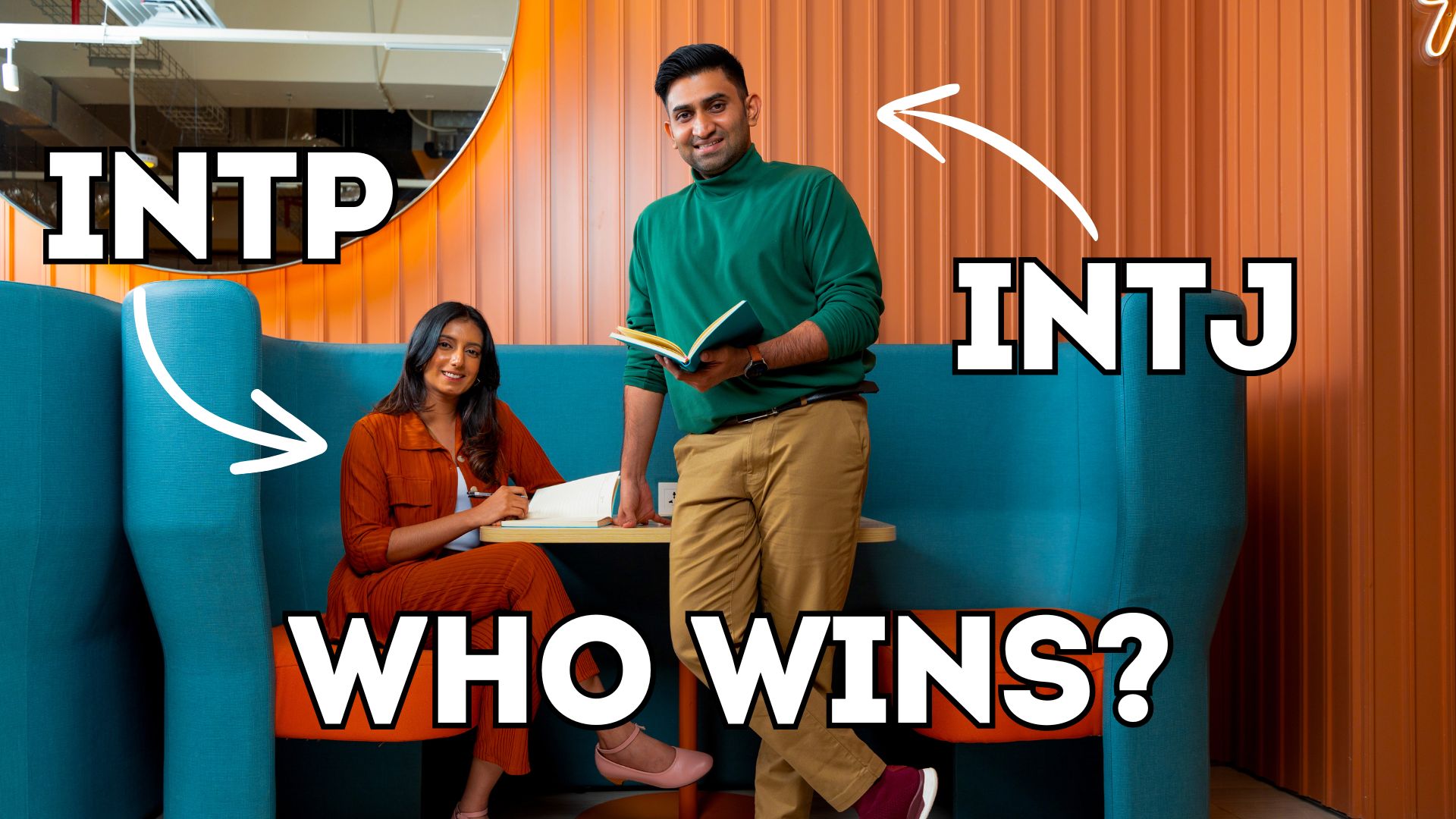INTJ and INTP are two of the most prominent personality types in the Myers-Briggs Personality Test. This piece will look at the INTJ vs INTP debate and why they are referred to as INTJ and INTP.
Generally, INTJs are confrontational and always believe in a proper way of doing things while INTPs are the opposite. They do not like to confront people and seek harmony in their company.
INTJ Vs INTP: Meaning, Traits And 8 Ways To Tell The Difference
By now you must have noticed that both of these personalities are almost similar except the way they approach their life. Both of these personalities are introverted(I), intuitive(N), and thinking(T). However, INTJs are Judging (J) while INTPs are Perceiving(P). Let us take a look at how these personalities are so similar yet so different.
INTJs: Schedule Following And Straight As An Arrow

INTJs are introverts who like to approach their life in a scheduled manner. They are externally focused and they seek harmony between their friends. They are hardworking and orderly and desire a sense of purpose from their life. These individuals have a contingency plan for everything like to envision their futures vividly.
Abstract thinking, long term planning, result oriented actions, natural leadership capabilities and strategic thinking is the name of the game if you want to identify an INTJ. Here are some ways you can identify them.
- Dominant Cognitive Function: Their Introverted Intuition (IN) means they are long term thinkers and plan their goals according to their sense of purpose.
- Extraverted Function: Their extraverted function being Extraverted Thinking (T), they focus on results while performing actions and approach things in a methodical way.
- Interaction: When interacting with their peers, they are confident and assertive and often welcome the opportunity to take charge when in a group setting.
- Dealing with Emotions: They approach their emotions in a very rational way often downplaying how they feel over the ultimate purpose. INTJs often struggle to understand the feelings others and sometimes their own.
- Careers: You will find these personalities in careers that involves strategic thinking and organizational skills such as engineering, management and so on.
Now for INTPs and how you can identify them.
INTPs: Spontaneous, Curious And Complex

INTPs on the other hand are abstract beings more focused on their internal processes rather than outward expression. These personalities do not like routine at all and want to approach things more spontaneously. INTPs focus their attention on making connections that provide understanding and a deeper connection.
Analytical thinking, exploring multiple ideas, open ended decisions, laid-back approaches, showing empathy and craving intellectual stimulation are some of the signs a person might be an INTP. Some ways you can identify them are:
- Dominant Cognitive Function: These intellectual thinkers dissect complex ideas and systems to incorporate them in their own principles.
- Extraverted Function: These individuals are accepting to a wide variety of ideas and possibilities due to their spontaneous nature.
- Interaction: INTPs are reserved and introspective. However, if you have a conversation with them, they are laid back and receptive to ideas. They do not like to take the lead though and are more of a behind the scenes person.
- Dealing with Emotions: These individuals are detached from their emotions, and approach them with logic and analytical thinking. They may not show it but they have empathy and understanding.
- Careers: Since they like intellectual exploration and creative thinking, you can find these people in fields of philosophy, research, computer science and more.
Now, let us look at eight clear differences with them.
8 Signs That Will Help You Differentiate Between INTJs And INTPs

These are short and simple signs you can use to identify these individuals.
- Decision Making Style: INTPs are much more methodical and take a long time to make decisions by weighing all options and gathering information. INTJs make decisions much more quickly.
- Reception to Change: INTPs are open to change while INTJs get completely disrupted if their carefully laid out plans go haywire.
- Emotional Expression: INTPs analyze their emotions logically while INTJs are emotionally detached.
- Handling Criticism: INTPs take criticism well and always look to improve while INTJs are sensitive to it and might get defensive by getting criticism.
- Interests and Hobbies: INTPs enjoy things that are more intellectually stimulating such as reading, tinkering and coding. INTJs have hobbies that are more structured and organized.
- Impressions on other people: INTPs are logical, mentally organized and relaxed while INTJs are socially presentable and organized.
- Stress Factors: INTJs in general have a hard time relaxing because they are focused on their purpose. INTPs are carefree and get stressed lesser than the former.
- What they want in a Relationship: Since INTPs are internal and love thinking, problem solving and intellectual stimulation, they want a partner who does the same. In case of INTJs, they have a criteria depending on their own preferences.
That is all you need to know about the INTJ vs INTP debate. If you liked this piece, then perhaps you’d like one looking at ESTJ personality types, click here to check it out.
